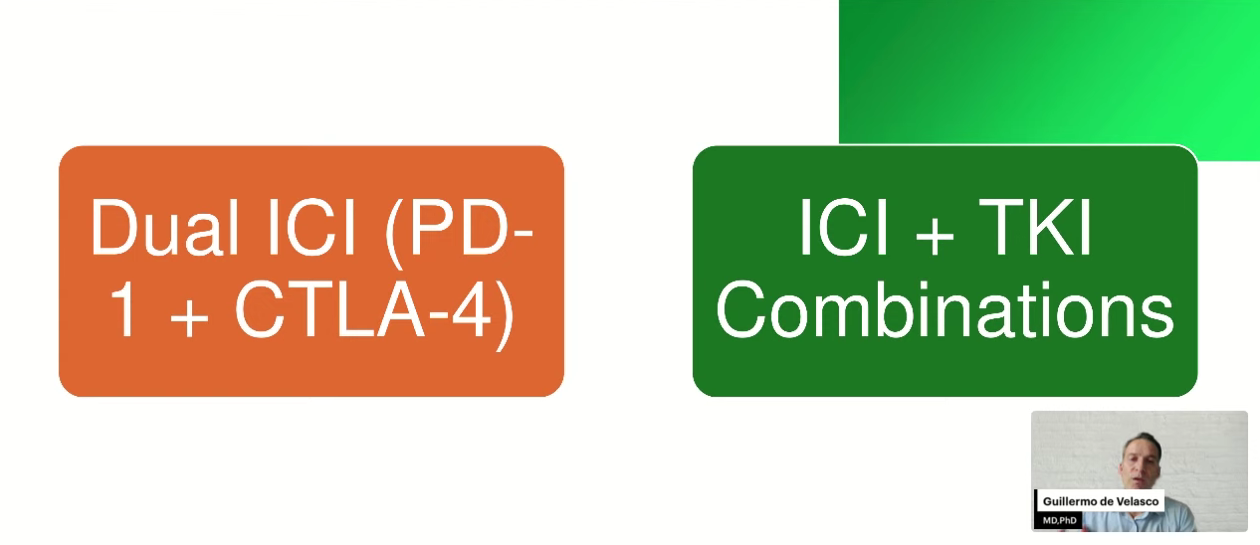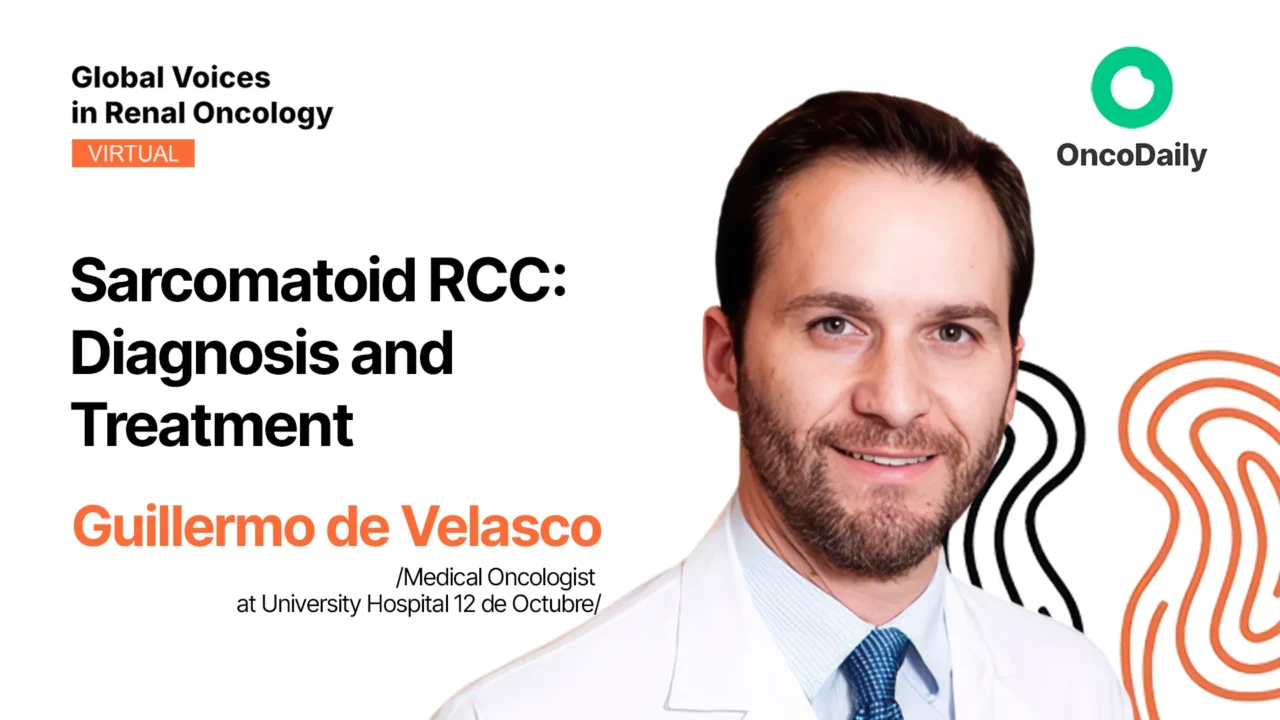At Global Voices in Renal Oncology (VIRO) 2025, organized by OncoDaily, Dr. Guillermo de Velasco, Medical Oncologist at Hospital Universitario 12 de Octubre in Madrid, Spain, delivered a talk on “Sarcomatoid RCC: Diagnosis and Treatment.”
Dr. de Velasco emphasized that sarcomatoid differentiation is not a distinct subtype of RCC, but rather a phenotype that can occur across different histologies—most commonly in clear cell RCC, but also in chromophobe and papillary tumors. He reminded the audience that any percentage of sarcomatoid component is clinically significant and sufficient for diagnosis, carrying important prognostic and therapeutic implications.

Key highlights from his presentation included
-
Prognosis: Sarcomatoid features are always classified as Grade 4 and are associated with aggressive biology and poorer outcomes, with many patients presenting with metastases at diagnosis.
-
Molecular profile: Common alterations include TP53, NF2, and CDKN2A/B deletions, while mutations linked to better prognosis (e.g., PBRM1) are less frequent. These tumors often exhibit an immune-inflamed phenotype with higher PD-L1 expression.
-
Treatment evolution: Historically, chemotherapy and targeted therapies yielded modest benefits. However, immune checkpoint inhibitors (IO-based combinations) have transformed outcomes, with data from CheckMate 214 and other pivotal trials showing significant improvements in response rates, PFS, and OS for patients with sarcomatoid RCC.
-
Clinical message: IO-based regimens are now considered the standard of care in both clear cell and non-clear cell RCC with sarcomatoid features, fundamentally changing the natural history of this once “untreatable” disease.
Join us in this conversation.


